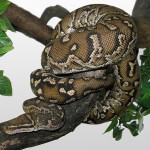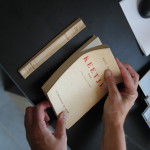During Chercher Le Texte, a conference held in Paris in October, an initiative of ELO (Electronic Literature Organisation), some of the ideas that are (latently) present in the workgroup of Algolit, were described and confirmed. This post is a subjective reading of several conferences I attended, meant as an invitation for discussions and exchanges. » Read the rest of this entry «
Après avoir cherché le texte
October 18th, 2013 § 0 comments § permalink
Scanning Neel Doff – print & OCR qualities
July 24th, 2013 § 0 comments § permalink
In order to be able to remix the work of Neel Doff, the content of the old books needs to be converted in plain text-files. Therefore, I used a bookscanner, I would have loved to use this one, but it needs some repairing; and an OCR-software that turns the image into legible text.
There is a direct relationship between the history of printing techniques and the quality of the final text-file. Could it be an interesting topic for a research project one day? For the moment, comparing the results is already an adventure. » Read the rest of this entry «
Scanning Neel Doff – from pdf to text
July 23rd, 2013 § 1 comment § permalink
After the consumer-like scanning process of two books of Neel Doff, I thought I was in heaven. The pdf that it gives as result is neat, keeps the nice texture of the old book and reads very well on an e-reader.
But to make this work accessible for machinal agents, the text needs to be non-formatted in a plain text-file. » Read the rest of this entry «
Literature & Snakes
July 23rd, 2013 § 0 comments § permalink
From 22nd July to 27th July French programmer and artist Olivier Heinry and me are in residency in Constant Variable, to explore the connections between literary creation and Python, a programming language that allows for scripting, text analysis and much more.
Olivier focusses on remixing spam and reusing the spam networks as alternative publishing platforms for ficticious authors who write using artistic algorithms. I take on the development of Neel Dorpf, a female literary spammer whose work is focused on mirroring the letters of contemporary women who offer their services by mail in the naturalist portraits of the characters of Neel Doff’s texts, who offer their services in order to survive. This residency was inspired by the worksessions of Algolit.
We present the results of this week’s work on Saturday during a Kitchen Table Presentation, from 19h onwards! Bring food & drinks.
Notes on the fly: http://note.pad.constantvzw.org:8000/1025
Scanning Neel Doff
July 23rd, 2013 § 1 comment § permalink
Last Friday I spent some time with Michael Korntheuer from Hackerspace Brussels in order to digitize two books written by Neel Doff, a Brussels author whose work has been welcomed in the public domain this year and whose work I’m trying to get read by machinal agents during a residency with Olivier Heinry in Variable.We scanned Keetje, an edition on dusty yellowish paper of 1954 by the Brussels publisher La Renaissance du Livre; and Jours de Famine et de Détresse, an edition on even more fragile paper of 1943 by another Brussels publisher Editions de la Toison d’Or. It caused some problems but in the end it worked and I finally uploaded the books and became a volunteer to the Gutenberg Project! Thanks, Michael.
Languages come & go, but algorithms stand the test of time
June 20th, 2013 § 0 comments § permalink
Ceci est un reflet du rapport collectif qui devrait être fait par le secrétaire défénitivement provisoire Etherpad, lors de la 2e rencontre d’Algolit du 27 au 29 mai 2013 au Belouvrage à Nantes, qui était focalisé sur le travail d’Oulipo.
Après une balade organisée par Nicolas Malevé dans les spirales de l’histoire de l’algoritme, on s’est plongé dans le sofa avec notre bibliographie oulipienne, on a analysé de près quelques recettes et finalement, on a décidé d’essayer de vider le poulet de façon digitale. Finalement, on a constaté que la recette des rencontres Oulipiennes nous pourrait servir aussi. » Read the rest of this entry «
Un algoritme doit être vu pour être cru
June 14th, 2013 § 1 comment § permalink
Lors d’une rencontre Algolit à Nantes, Nicolas Malevé a partagé des idées qu’il avait ressemblées pour un cours à l’ERG. » Read the rest of this entry «
#i-literature @Atlantide
June 11th, 2013 § 0 comments § permalink
Le 1er juin à Nantes j’ai assisté à la seule intervention sur la littérature numérique au sein de la première édition du festival littéraire Atlantide à Nantes.
L’intervenante était… Catherine Lenoble qui m’avait invitée au même moment pour une intervention autour du même sujet. Les exemples et les références qu’elle a fournis me sont très chers, en plus qu’ils se trouvent en ligne. A explorer!
Redocumentation & Repensées
June 10th, 2013 § 2 comments § permalink
Le 30 mai 2013 j’ai été invitée pour parler de mes expériences en littérature numériques lors d’un cycle de rencontres organisé par Catherine Lenoble et Guénaël Boutouillet. Dans le cadre du cycle ils font ce qu’ils appellent la ‘redocumentation’. Quelle source de richesse : toute intervention est enregistrée sur vidéo, mais vous y retrouvez aussi le lien vers ma présentation même et quelques commentaires:
http://lirecrirenumerique.wordpress.com/2013/07/08/redocumentation-jeudi-30-mai-2013-troisieme-journee-du-cycle/
tout comme des interventions passionnantes par Olivier Ertszscheid et Laurent Neyssensas sur L’état des lieu du web citoyen et marchand et de Lionel Maurel sur les Copy-partys.
Afin de compléter ce bel article j’aimerais bien écrire quelques lignes sur l’expérience qui a suivie mon intervention. L’après-midi une quinzaine de femmes ont participé à un atelier d’écriture collaborative en utilisant l’outil libre et en ligne Etherpad. » Read the rest of this entry «
Joyeuse Année ! Joyeux Domaine Public !
December 14th, 2012 § 1 comment § permalink
Le XXIe siècle nous met à disposition de grandes collections par un simple click de souris. Tout texte qui n’est pas disponible digitalement, peut l’être en utilisant un scanner et des logiciels d’OCR dont des modèles domestiques se développent.
La culture de la copie crée de nouveaux défis pour l’écrivain de fiction littéraire. » Read the rest of this entry «



